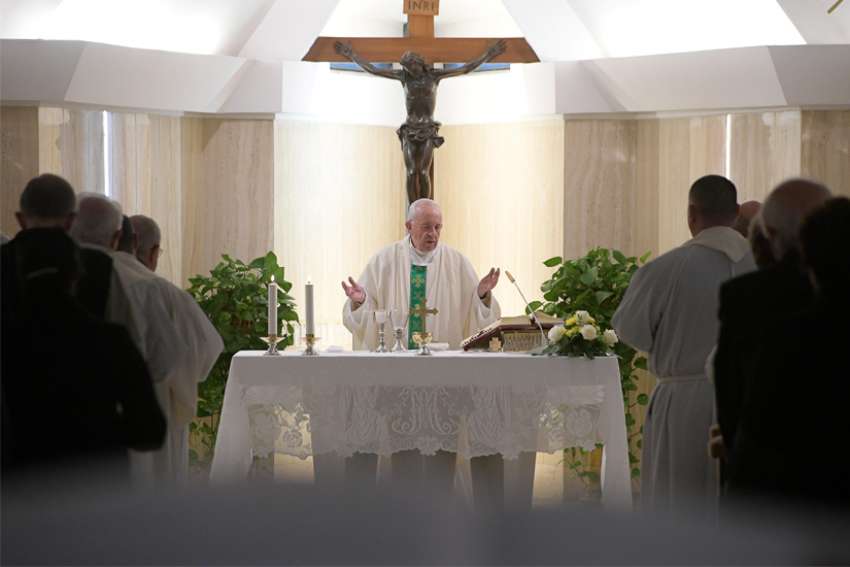The "conditions Christian," Pope Francis said, says things like: "'I am a Christian as long as things are done this way.' 'No, no, these changes aren't Christian.' 'This is heresy.' 'This won't do.' Christians who place conditions on God, who place conditions on the faith and the action of God."
Celebrating an early morning Mass Oct. 8 in the chapel of the Domus Sanctae Marthae, the pope focused on the day's first reading from Jonah, noting how the prophet first refused to do God's bidding, was swallowed by a whale, obeyed God when given a second chance and ended up angry with God because God did not destroy the city of Ninevah.
Jonah was "stubborn" about what he thought faith was, the pope said. But "the Lord was stubborn in his mercy. He never leaves us. He knocks at the door of our hearts until the end."
Jonah, the pope said, "is the model of those 'as long as' Christians, those Christians with conditions."
Placing conditions on God and on the church, he said, encloses Christians "in their own ideas and ends up in ideology. It's the awful journey from faith to ideology. And today there are many people like this."
Such Christians, he said, are afraid "of growth, of the challenges of life, the challenges of the Lord, the challenges of history" and instead stick to "their first convictions."
"They prefer the ideology to faith," he said, and they move away from the community because "they are afraid to put themselves in God's hands and prefer to judge everything from the smallness of their hearts."
The Vatican News report on the pope's homily included no mention of the Synod of Bishops for the Amazon or the controversy surrounding it, including accusations that some of the statements in the synod working document are heretical.
Pope Francis said God's decision not to carry out his threatened punishment of Ninevah reveals "the Lord who draws near to all realities, who is not disgusted. Things don't disgust the Lord. Our sins don't disgust him. He draws near just as he drew near to the lepers and the sick because he came to heal and to save, not to condemn."


